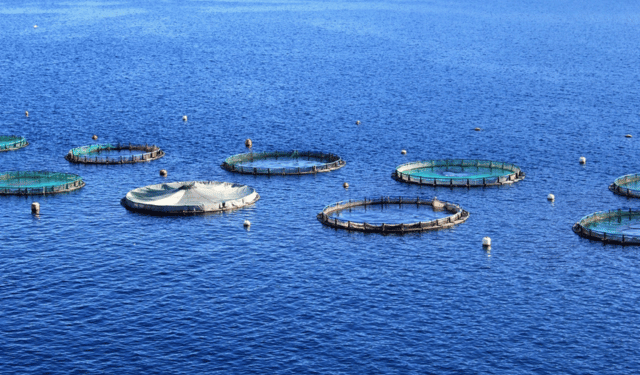Aquaculture and sustainability. New frontiers for feed – Aquaculture needs a change of course to reduce pressure on fish stocks and ensure sustainable production. The solution? Innovative feed ingredients that reduce environmental impact and improve farming efficiency. In this scenario, insect farming emerges as one of the most promising answers.
In Salamanca, Spain, the construction of the world’s largest insect farm has just begun. Biotech start-up Tebrio has laid the foundation stone of a facility that will produce 100,000 tonnes per year of insect meal, with 60 per cent destined for aquaculture. The facility, which will cover 90,000 square metres, aims to become a benchmark for sustainability in the livestock sector.
The innovation is not only in the scale of the project, but also in the production model. The breeding of Tenebrio molitor, the mealworm, is based on circular economy principles: the insects are fed with by-products of the cereal industry, reducing waste and valorising otherwise unused resources. Proteins and lipids for animal feed, organic biofertilisers and chitosan, a substance used in pharmaceuticals, cosmetics and bioplastics, are derived from the breeding process.
The plant will be powered by renewable energy and aims to achieve a negative carbon footprint. Solar panels will triple the percentage of energy self-sufficiency, while the entire production process is designed to minimise waste. This production model fits perfectly into the needs of modern aquaculture, which is increasingly oriented towards sustainable solutions.
The large-scale adoption of insect meal in fish feed could represent a turning point for the industry, reducing dependence on fish and soybean meal, often associated with deforestation and overfishing. Proteins from insects, besides having an excellent nutritional profile, offer greater efficiency in food conversion and less environmental impact.
Tebrio’s project is not only a technological bet, but also an economic one: 150 direct and over 1,300 indirect jobs are expected to be created, with an investment of EUR 110 million. The first phase will be completed by the end of 2025, while total completion is planned for 2028.
Aquaculture needs innovation to grow sustainably and feed is one of the most critical aspects. The use of insect meal could revolutionise the industry, providing an efficient, sustainable and scalable alternative for the future of fish farming.
The construction of the world’s largest insect farm is a clear signal: change is already underway.
Aquaculture and sustainability. New frontiers for feed








